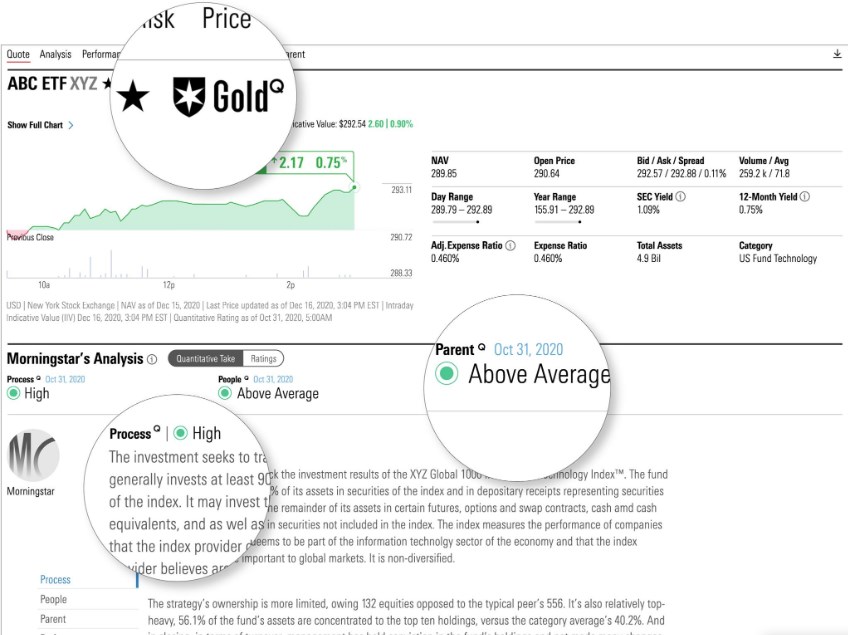Scott Mackenzie: The Canadian Securities Administrators have started to implement client-focused reforms or CFR for short. These are a series of regulatory changes that many believe will benefit investors. And given empowering investor success is at the core of our mission here at Morningstar, we're very supportive of these initiatives. So, to talk about these changes, I'm joined today by Ian Tam, our Director of Investment Research, here at Morningstar Canada.
Hello, Ian.
Ian Tam: Hey, Scott. Good to see you.
Mackenzie: Ian, what exactly are the client-focused reforms?
Tam: Well, in a nutshell, Scott, the CFRs are changes that have been made to National Instrument 31-103, which is the regulatory document from the CSA that governs the advisor-to-client relationship. Now, the changes reflect a higher minimum standard at which all advisors in Canada must operate, and it requires that recommendations being made are always in the client's best interest.
Mackenzie: Okay. Could you break it down for us a bit here, Ian? What are the big pieces that actually matter to both advisors and investors?
Tam: Yeah. So, at the heart of the CFRs is the idea that advisors must make a suitability determination that is in the best interest of the client. And to do this advisors are required to have documented "know your client" and "know your product" processes in place and that includes gauging a client's risk capacity as well as their risk tolerance as well as having documented knowledge of a range of products, all before making an actual recommendation.
There's also an element of disclosing and addressing material conflicts of interest. And one of those conflicts is the sale of proprietary products which are very prevalent in Canada, which is a pretty vertically integrated market. And of course, all of this will hopefully culminate in a better experience for the retail investor.
Mackenzie: Well, it certainly does sound like a big lift. Are there any parts of the reforms that you see as being particularly onerous to implement?
Tam: Yeah, we believe that firms are likely to be the most impacted by the newer KYP requirements. The regulation now requires that all firms must assess, approve, and monitor securities for significant changes. At the advisor level, they must also make recommendations from that firm's approved list, and they must conduct their own due diligence on securities that they're about to recommend. Part of that due diligence also includes considering a reasonable range of alternatives. So, what that means is that for firms with very large product shelves, they have the task of assessing and improving a bunch of securities on that shelf, which is going to be, to be honest, a lot of work. On the other hand, smaller firms that currently don't have a well-defined product shelf will quickly need to spin up processes that allow them both to be competitive, but also allow for ample choice amongst their investment advisors. So, either way, it's going to take a bit of work.
Mackenzie: It sure will. And how can we help out? How can Morningstar help with CFR implementation?
Tam: Well, Scott, as you mentioned earlier, Morningstar's mission has always been to help investors succeed. And we do this by providing data, analytics, and research to power an investment decision. We also realize that these decisions aren't arrived at simply by looking at amounts of data. The value that we add is delivering information in a digestible format that can be integrated into an advisor workflow to help meet some of those regulatory requirements, but at the same time, not weigh down an advisor with an overload of information.
Mackenzie: Indeed. There doesn't seem to be a single answer or prescription to dealing with the CFR question, is there?
Tam: That's true, Scott. By their nature, the CFRs are nonprescriptive, meaning that each firm will be interpreting the rules and implementing their own processes just a little bit differently. Some firms, they already have processes in place to meet certain parts of the requirements, while others might require more of a skeleton or a framework. And the good news is that Morningstar can help on both fronts. To quote a recent talk I had with the OSC, CFRs are not really a check the box exercise. The intent is really to ensure that clients get the best possible advice that will be in their best interest. So, to this extent, Morningstar is thrilled to help.
Mackenzie: That's great. Thank you so much, Ian.
How Are Investors Treated Around the World?
Get the latest Global Investor Experience Study on regulation and taxation here





















